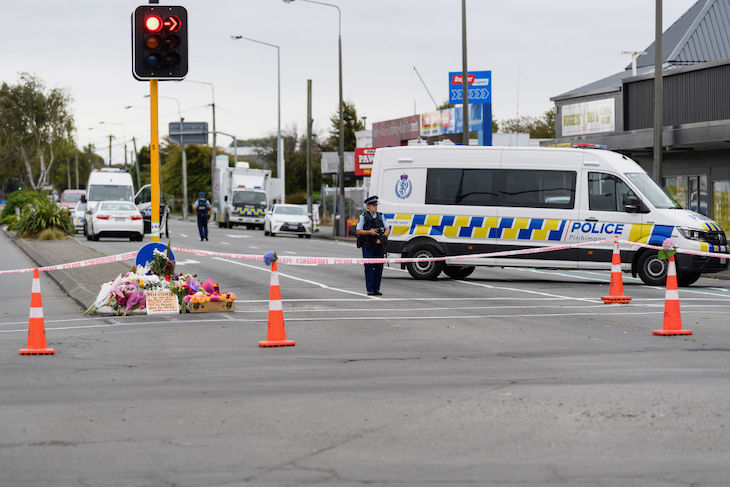As New Zealand comes to terms with the most deadly terrorist attack ever carried out on its soil, leaders from around the world will be asking their security advisors whether this marks the start of an escalation of right-wing threats and whether their current strategies for defeating this form of extremism are fit for purpose.
It has been obvious for several years now that far-right extremism has been growing across western democracies with social media providing the means for a new global connectivity between far-right individuals and groups.
In the past three years alone, the UK has experienced two terrorist attacks carried out by far-right extremists (the murder of Jo Cox MP and the attack against the Finsbury Park mosque in London in 2017), proscribed a far-right group (National Action) as a terrorist organisation and started treating far-right extremism as a threat to national security, resulting in MI5 and the Joint Terrorism Analysis Centre now assessing far-right intelligence alongside its work on Islamist terrorism. There are currently over 100 live investigations into far-right extremists and four attack plots have been thwarted by counter-terrorism police units, resulting in several convictions for terrorist offences.
Large scale terrorist attacks by far-right extremists are not new (even in the UK) but remain relatively rare when compared to Islamist terrorist attacks around the world, although their attacks can be particularly lethal owing to the obsession of far-right extremists with high calibre automatic weapons and improvised explosive devices.
I shall never forget being part of the Scotland Yard investigation team dealing with the three London nail bomb attacks over three successive weekends in 1999 carried out by the neo-Nazi terrorist David Copeland. Three people, including a pregnant woman, were sadly killed.
There are also close parallels to be drawn between Friday’s attack in New Zealand and the deadliest far-right terrorist attack in Norway eight years ago when Anders Breivik killed 69 people with a car bomb and automatic weapons. In both, the attacker left a ‘manifesto’, used improvised explosive devices alongside high calibre firearms, meticulously planned the attack and drew inspiration from the same far-right ideologues.
In the aftermath of this attack where so many innocent lives have been lost, there will be a lot of soul searching by both political leaders and the police and intelligence agencies of New Zealand who are charged with keeping the country safe. Commentators will be tempted to highlight perceived failings by organisations who may have had an opportunity to intervene to thwart this attack, and to lurch to simple solutions for future strategy and policy.
Regardless as to whether terrorism is motivated by far-right ideology or Islamism, the most significant lesson from the history of countering terrorism threats is that they are best defeated through a rule of law counter-terrorism framework, achieved through covert intelligence gathering and evidence collection against known threats to prevent attacks from occurring. The strategy depends though on identifying individuals of concern in the first place which requires support from the wider community who need to be repeatedly encouraged to report suspicious behaviour.
It would be extremely unusual if someone somewhere in New Zealand had not suspected something about the suspect(s) involved in this attack prior to it taking place but if the perpetrators were followers of Breivik, it is entirely possible that they would have read about his modus operandi: which was to remain at all times below the radar of the authorities. He made strenuous efforts over several years to remain anonymous and inconspicuous, which is why he was not subject to detailed investigation.
Terrorist attacks are mostly prevented by good intelligence and in the past few years this has led to significant numbers of individuals in the UK and elsewhere facing lengthy prison sentences. Twenty-two attack plots have been disrupted in the UK in the past two years, 18 by Islamist extremists.
As horrific as this attack in New Zealand has been and regardless of the findings of the official review that will now take place, this is not a time to deviate from what has been a largely successful rule of law counter-terrorism model across western democracies. There is a dignity in defeating all forms of terrorism in this way with divisive extremist narratives calmly silenced by a judge in a court of law.
The police should also tackle anti-Muslim hate crime with equal rigour whilst simultaneously encouraging Muslim communities to trust the UK’s Prevent strategy and report suspicious activities that might relate to extremism.
The people of New Zealand will mourn following this attack, but like the Norwegians in the aftermath of the Breivik attack, the values and freedoms that bind their nation together, including the freedom of expression, will endure and become stronger as a result.
Richard Walton is a Senior Fellow at Policy Exchange and former Head of the Metropolitan Police’s Counter-Terrorism Command.






Comments